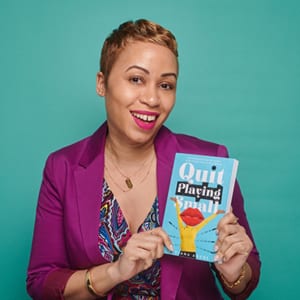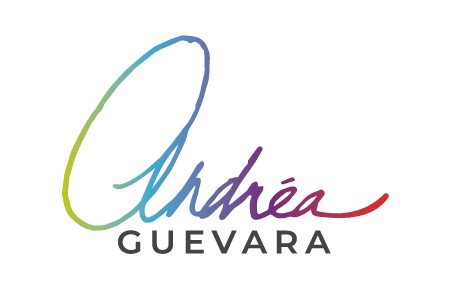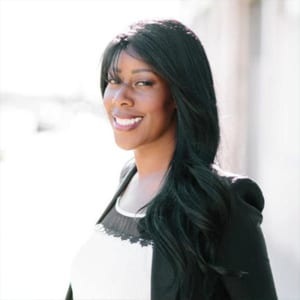How to Focus & Finish Your Creative Work (3 Experts Share)
I have a confession. I started writing my memoir in 2013, finished the first draft in 2017, and yet STILL HAVEN’T FINISHED the damn book! BUT 2020 is the year I finish this thing!
It’d be easy to call myself lazy, or a procrastinator, but that’s not the real issue here. I know why it’s come to this. And it’s a lot more than that. Eyeroll. In short, a lot of traumatic things have happened in the past few years, but it’s finally time. While I’m going back to some of my tried-and-true methods to get shit done, I am also committed to being open to new ways of doing things, especially if that knowledge is coming from people who know. So I reached out to some of my favorite women who have accomplished kickass things. I asked them to share their secrets for staying focused and actually finishing their creative projects.
Here’s what I asked them:
What are the top 1-3 things that help you stay focused and actually FINISH your creative work?
And sub-question: How does it help you/what does it do for you?
 Natashia Deón
Natashia Deón
Author of the novel, GRACE
When I asked Natashia Deón to provide her name and title for this post she provided the above title. But there’s no way I’m letting her get away with that minuscule description. 😉 Let me tell you why you want to listen to what this woman has to say: not only was her debut novel, GRACE, critically-acclaimed, but it also garnered her a 2017 NAACP Image Award nomination, was a New York Times Top Book of 2016, and has too many other accolades to list here, but she was also a U.S. delegate to Armenia, in partnership with the University of Iowa’s International Writing Workshop and the U.S. State Department, not only that but she is also a practicing attorney, law professor, and creative writing professor, AND she’s also creator of Dirty Laundry Lit reading series, founder of the nonprofit REDEEMED, and a mother of two. She also happens to be very kind, generous, and down to earth. Here’s her advice:
The top three things are probably in this order are:
1) Committing to finishing within the year
2) Then mapping out what I guessed it’d take to “finish” in that year
I asked myself, does it mean writing a complete scene every other day…even if it was really bad? Would it take a week? Did finishing mean I’d have to start by taking a week to outline the novel? Would I outline? I really just got real with myself–my other time commitments, my family, birthdays, job, etc. I wanted to break it down step-by-step because, as the saying goes, if you want to eat something that’s huge, you have to take it a bite at a time.
And finally,
3) I decide to invest in this story.
Not just with my time but saving up enough money to hire a professional editor to have a look at it and give me feedback. So many writers want some other writer to “donate an investment” in them by giving them free feedback and advice. But if you’re a professional, or are serious about your choice to write, you need to invest in your “wedding day.” At least get your nails done or a hair cut for the photos.

Amanda Fletcher
WRITER FIRST and PEN America Emerging Voices Fellowship Manager
Amanda and I met when we both were working for PEN Center USA in Beverly Hills. At the time, we were both kinda working on our temporarily shelved memoirs. She’d also been through the wringer in recent years. Aside from her killer taste in music, I immediately loved Amanda’s no bullshit attitude and beautiful honesty. And of course, she’s a great writer–she was originally an Emerging Voices Fellow before she ever came on as staff. Anyway, Amanda finished her first draft of her memoir and is currently deep into edits. Last year, she used Instagram as a tool to keep herself accountable to her writing goals and as a result posted snippets of her memoir, which were, of course, equal parts stunning, delicious, and profound.
So I wanted to ask her what helped focus and finish her creative work. Here are her answers:
-
- Using a timer. Start with 10 minutes and move up to 50 minutes. Keep your ass in the seat until the timer goes off. Once it does, set it for 5 minutes. Get up and stretch, pee, get a snack, whatever, but once it goes off again, sit your ass back down and do another round. Knowing there is a time limit helps me to stay focused on the task at hand, knowing that as soon as the timer sounds, I can check my email or my socials. I have pretty severe ADD so I need parameters around my practice. And I resisted this one forever–my roommate literally bought me a kitchen timer to make me try it. And it worked! I finished a draft of my book in less than a year. So, remember that even the things you think are stupid–maybe especially those things–can be of the most help to you.
- Hit it every day. Even if it is just that single 10 minute round. I need my story to be at the forefront of my focus, even on the days I am drowning in my day job. Sometimes all I can do is make notes on my phone, but I keep it fresh in my consciousness as much as possible–my best ruminations come from riding my bike in the morning. I am constantly pulling over to jot down ideas. Hey, if you’re stuck, jump on your bike or go for a walk or something. Let the universe break you open.
- Have an accountability partner. Meet another writer for coffee and bring your laptops. Use the timer to control the conversation. Catch up for 10, write for 30, break for 10, and repeat. I am lucky enough to have a friend–Jamie Schaffner–who is enmeshed in her first novel and we have committed to checking in with each other every time we complete a round. We set goals for the day and encourage each other through all aspects of the writing process via texts and memes and the screen effects you can send on an iPhone, like fireworks and confetti and shit. It helps to know people are watching–I kind of went extreme on this one and posted excerpts to my Instagram account. They could only be pulled from what I had written the day before. Think of it like exercise and diet–way easier to stick to when you are forced to record your progress.

Ahyiana Angel
Author, Host + Founder of Mayzie Media
I first encountered Ahyiana through my friend and colleague Betsy Cardenas who interviewed her on her podcast. Anywho, I’ve been following Ahyiana ever since. If you’re a creative and an entrepreneur you’ll love her popular podcast Switch Pivot or Quit and her book, Quit Playing Small. And last year, we met IRL at ALT Summit where we were both speakers! I love Ahyiana’s energy and positivity, and of course her intelligence, but I also love how she’s willing to call bullshit on common tropes of the entrepreneur life (like influencer culture, ick). Anyway, I knew it would be important to ask her sage advice. Here’s what she had to say:
What helps me to stay focused is setting a goal or having an agenda. It’s easier to work toward an endpoint when I know what the goal or objective is. When I’m not clear on what my goal is it is much easier to get off track and find yourself working on things that don’t matter in the grand scheme of things. This type of action ultimately amounts to creating busy work for yourself. Having an agenda or planned end goal keeps me productive and motivated because once I complete one thing I can build onto the next and keep achieving my goals from there.
So there you have it, great advice from three badasses who are DOING. THE. WORK.
I hope you enjoyed this break from just hearing me blab. Let me know if any of this advice resonated with you, or let me know what subject matter you’d like to see other featured expert posts like this on, in the future.

 Natashia Deón
Natashia Deón
